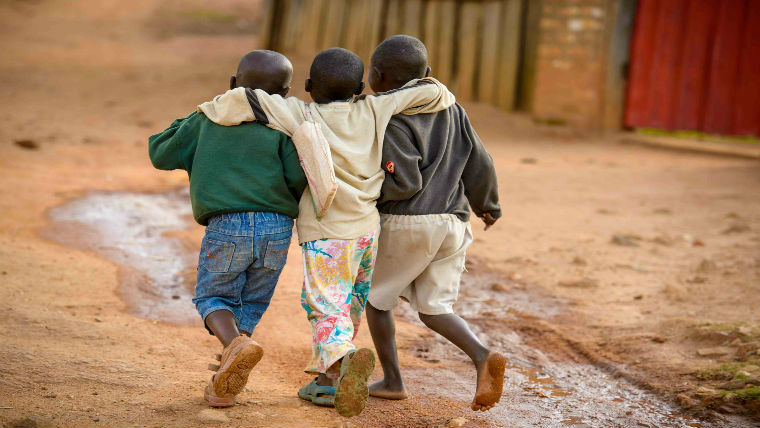Report: Stop at Nothing: Post-2015 Goals for Children
Success of new global poverty goals hinges on one factor, says World Vision
- This time around, global development goals must not leave behind the hardest-to-reach, says a World Vision report launched today.
- World Vision is at the UN General Assembly in New York, calling on world leaders to stop at nothing to ensure post-2015 goals focus on the most vulnerable children.
 The biggest lesson of the Millennium Development Goals was that ending global poverty depends on reaching the most vulnerable children. That’s the finding of a new report, Stop at Nothing: Post-2015 Goals for Children, released today by World Vision to coincide with the UN General Assembly in New York.
The biggest lesson of the Millennium Development Goals was that ending global poverty depends on reaching the most vulnerable children. That’s the finding of a new report, Stop at Nothing: Post-2015 Goals for Children, released today by World Vision to coincide with the UN General Assembly in New York.
The report explains that while Millennium Development Goals brought better health and living standards to hundreds of millions of people, design flaws meant over a billion people on the margins of society – particularly vulnerable children – were passed over, ignored by the targets and unable to benefit from the tide that lifted their neighbours.
“The success of ‘post-2015’ targets that replace the Millennium Development Goals must be measured by their ability to reach the poorest and most vulnerable children in the hardest places to live,” says World Vision’s director of public policy, Kirsty Nowlan. “And leaders gathered this week at the UN General Assembly in New York must stop at nothing to see that happen.”
The report says issues affecting children should be a priority within the new framework, because healthy, cared for and educated children become productive adults and contribute to healthy, peaceful and productive societies, breaking the poverty cycle.
“An end to absolute poverty can only be realised when it includes children on the margins, enabling them to meet basic needs and live a life of dignity,” says Nowlan.
“It is only when a women like 25-year-old Rakia in Niger can safely give birth to a child who will survive and thrive, or when a 13-year-old Razita from Afghanistan is able to access nutritious food, healthcare and a quality education that we will know that the post-2015 goals have succeeded.”
Stop at Nothing explains a 5 per cent improvement in child survival raises economic growth by 1 per cent per year over the subsequent decade. The converse also holds true. Failing to invest in children comes at a price. The annual costs associated with child undernutrition in Africa have been found to be between 1.9 per cent and16.5 per cent of GDP.
The report also emphasises the need to ensure the post-2015 process considers how new goals will be achieved. It outlines why post-2015 goals will not be delivered by simply doing more of the same, explaining new and innovative approaches are needed.
Nowlan says: “The post-2015 process and goals have to enable and include people from all sectors of society. This includes citizens, governments, businesses and civil society organisations, in order to effectively make their distinct and complementary contributions.”
Stop at Nothing: Post-2015 Goals for Children calls for the post-2015 agenda to:
- Invest in children as the key to sustainable development: Early intervention and investment in vulnerable children is the surest way to create a more just and prosperous world. The new framework should address explicitly the most vulnerable children by ensuring their health, nutrition and protection; targeting children in fragile contexts; and eliminating all forms of violence against children.
- Spell out how it will achieve change for all children: The new goals will not be delivered by doing more of the same. The post-2015 framework will need citizens, government, business and civil society to make their distinct and complementary contributions.
- Measure success by how it delivers for the most vulnerable children in the hardest to reach places: When a girl from the poorest family in the most crowded slum or remotest village can grow to adulthood in good health and perceive the future her secondary education can provide, we will know we are achieving sustainable development.
For media inquiries, please contact the media team at World Vision +44 (0)7889 631 613